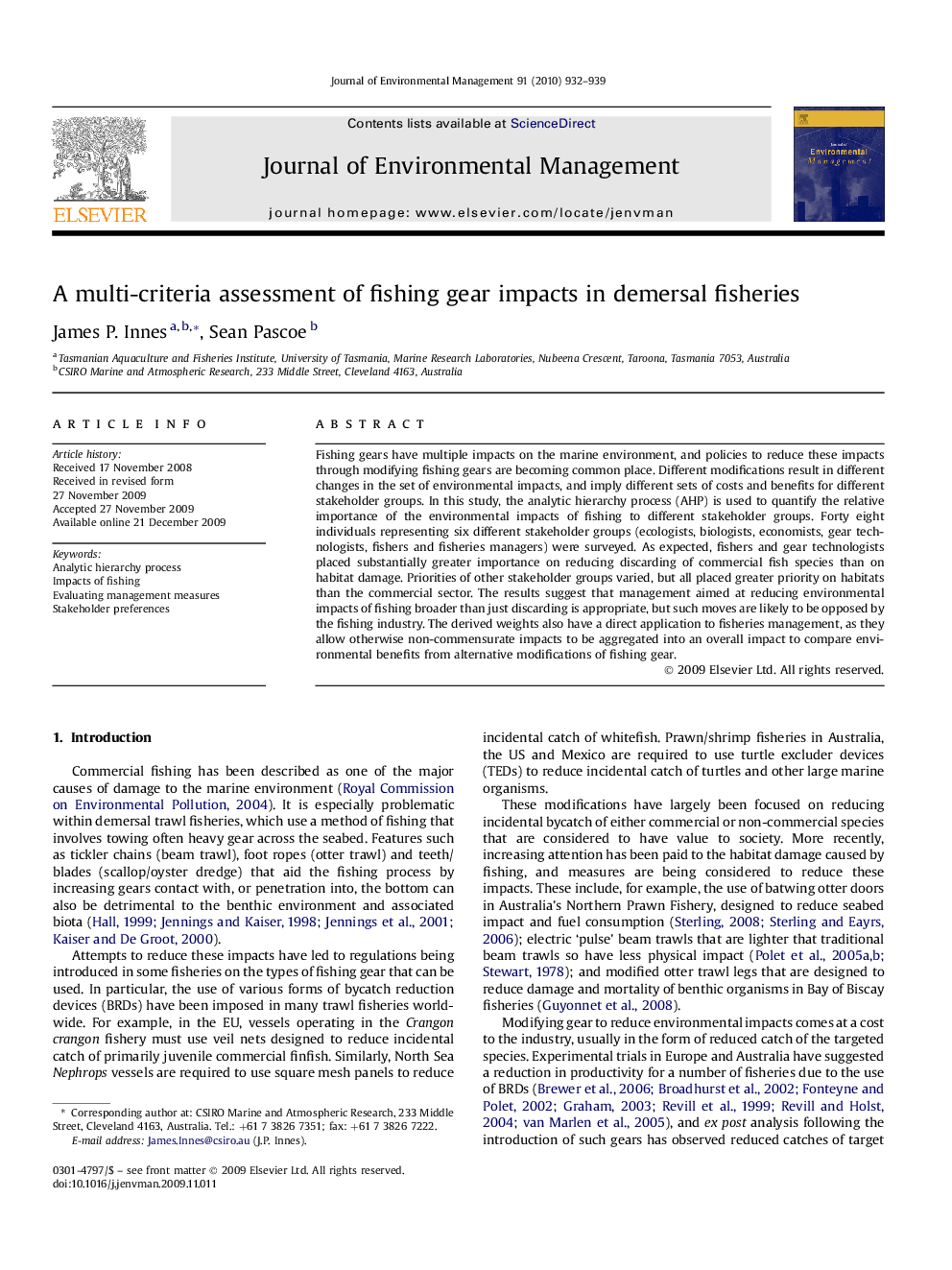| Article ID | Journal | Published Year | Pages | File Type |
|---|---|---|---|---|
| 1057685 | Journal of Environmental Management | 2010 | 8 Pages |
Fishing gears have multiple impacts on the marine environment, and policies to reduce these impacts through modifying fishing gears are becoming common place. Different modifications result in different changes in the set of environmental impacts, and imply different sets of costs and benefits for different stakeholder groups. In this study, the analytic hierarchy process (AHP) is used to quantify the relative importance of the environmental impacts of fishing to different stakeholder groups. Forty eight individuals representing six different stakeholder groups (ecologists, biologists, economists, gear technologists, fishers and fisheries managers) were surveyed. As expected, fishers and gear technologists placed substantially greater importance on reducing discarding of commercial fish species than on habitat damage. Priorities of other stakeholder groups varied, but all placed greater priority on habitats than the commercial sector. The results suggest that management aimed at reducing environmental impacts of fishing broader than just discarding is appropriate, but such moves are likely to be opposed by the fishing industry. The derived weights also have a direct application to fisheries management, as they allow otherwise non-commensurate impacts to be aggregated into an overall impact to compare environmental benefits from alternative modifications of fishing gear.
